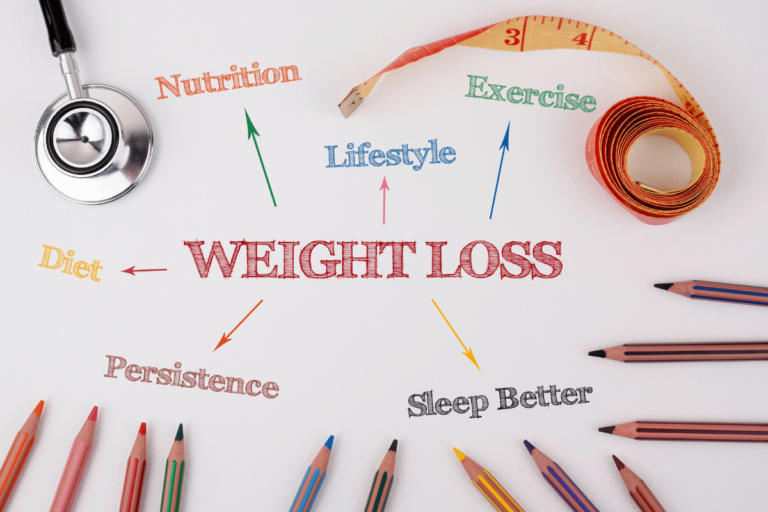How Can I Lower My Risk of Prostate Cancer?
Imagine your health as a garden that requires careful tending to flourish. Just like a garden, your body needs attention and maintenance to thrive and ward off potential threats.
When it comes to lowering your risk of prostate cancer, there are crucial steps you can take to safeguard your well-being. By making informed choices and prioritizing certain lifestyle habits, you can cultivate a healthier environment within yourself.
But what are these steps, and how can they help you navigate the path towards better prostate health?
Key Takeaways
- Regular screenings and discussions with healthcare provider are vital for early detection.
- Healthy diet choices and physical activity help lower prostate cancer risk.
- Lifestyle modifications, like quitting smoking and managing alcohol intake, reduce risk.
- Adequate vitamin D levels and quality sleep play crucial roles in lowering prostate cancer risk.
Importance of Regular Screenings
Regular screenings play a crucial role in detecting prostate cancer early, improving treatment outcomes, and overall survival rates. By attending regular checkups, you increase the chances of catching any potential issues at an early stage when they're most treatable. Prostate cancer is known to progress slowly, especially in its early stages, making early detection key in successful treatment.
These screenings often involve a simple blood test known as the prostate-specific antigen (PSA) test, which can help identify any abnormalities in the prostate gland. If further evaluation is needed, your healthcare provider may recommend additional tests like a digital rectal exam (DRE) or a biopsy.
Healthy Diet Choices
To further reduce your risk of prostate cancer, consider making healthy diet choices that can support your overall prostate health. Ensuring your diet includes foods rich in antioxidants, vitamins, and minerals is crucial. Here are some dietary recommendations that may help promote prostate health:
| Food Group | Recommendations |
|---|---|
| Fruits and Vegetables | Aim for at least 5 servings a day. These are high in antioxidants. |
| Healthy Fats | Include sources like nuts, seeds, and olive oil. These may support prostate health. |
| Fish | Opt for fatty fish such as salmon, which is rich in omega-3 fatty acids. |
| Green Tea | Consuming green tea may have benefits for prostate health. |
In addition to these dietary choices, some men consider incorporating nutritional supplements like saw palmetto or lycopene, which are believed to support prostate health. Remember, while diet plays a role in overall health, it is essential to consult with a healthcare provider before making significant dietary changes or starting any new supplements to ensure they are appropriate for you and your individual health needs.
Benefits of Physical Activity
Engaging in regular physical activity offers a multitude of benefits when it comes to lowering your risk of prostate cancer.
Exercise not only helps in preventing the development of the disease but also contributes to overall fitness and health.
Exercise for Prevention
Participating in regular physical activities can significantly reduce the risk of developing prostate cancer. Exercise benefits extend beyond just physical well-being; they play a crucial role in prevention strategies against prostate cancer.
Studies have shown that engaging in moderate to vigorous physical activity can help lower the risk of developing this type of cancer. Regular exercise can help maintain a healthy weight, improve immune function, and regulate hormone levels, all of which are factors that contribute to reducing the risk of prostate cancer.
Aim for at least 150 minutes of moderate-intensity exercise per week, such as brisk walking or cycling, to reap the protective benefits against prostate cancer. By prioritizing physical activity, you can take proactive steps in safeguarding your health.
Fitness and Health
Regular physical activity offers numerous benefits for your fitness and overall health. Engaging in fitness routines not only helps maintain a healthy weight but also reduces the risk of various health conditions, including prostate cancer.
Physical activity is linked to improved immune function, better cardiovascular health, and enhanced mental well-being. Additionally, staying active can positively impact your hormonal balance, potentially lowering the risk of prostate cancer development.
Alongside fitness routines, adopting healthy dietary habits further contributes to overall health and may help prevent prostate cancer. Combining regular exercise with a balanced diet rich in fruits, vegetables, and whole grains can significantly improve your well-being and reduce the likelihood of developing prostate cancer.
Understanding Risk Factors
Understanding the risk factors associated with prostate cancer is crucial for early detection and prevention efforts. Genetic predisposition plays a significant role in prostate cancer risk. If you have a family history of the disease, especially in close relatives like a father or brother, your risk may be higher. Additionally, hormonal imbalances, particularly high levels of testosterone or low levels of certain hormones like estrogen, can also increase the likelihood of developing prostate cancer. It's essential to be aware of these factors to take proactive steps towards reducing your risk.
Regular screenings and discussions with your healthcare provider are key to managing these risk factors effectively. By understanding your genetic predisposition and monitoring hormonal levels, you can work towards early detection and intervention if needed. Making lifestyle changes such as maintaining a healthy weight, exercising regularly, and adopting a balanced diet can also help reduce your risk. Stay informed and proactive in managing these risk factors to promote better prostate health.
Impact of Smoking and Alcohol
Consider the detrimental impact of smoking and alcohol consumption on prostate cancer risk. Smoking cessation and alcohol moderation are crucial lifestyle modifications that can significantly reduce your risk of developing prostate cancer. Research has shown a clear link between smoking, heavy alcohol consumption, and an increased likelihood of prostate cancer. By making conscious choices to quit smoking and limit alcohol intake, you can actively lower your risk and prioritize your health.
| Smoking Cessation | Alcohol Moderation |
|---|---|
| – Quit smoking to | – Limit alcohol intake |
| reduce cancer risk | to reduce risk |
| – Seek support | – Know your limits |
| for quitting | and stick to them |
Maintaining a Healthy Weight
Maintaining a healthy weight is essential for reducing the risk of developing prostate cancer. Weight management plays a significant role in prostate cancer prevention. Being overweight or obese can increase the likelihood of developing aggressive forms of prostate cancer. To maintain a healthy weight, focus on incorporating regular physical activity into your routine and adopting healthy dietary habits.
Engaging in regular exercise not only helps in weight management but also contributes to overall well-being. Aim for at least 150 minutes of moderate-intensity exercise per week, such as brisk walking, jogging, or swimming. Additionally, consider strength training exercises to build muscle mass and boost metabolism.
When it comes to dietary habits, prioritize a balanced diet rich in fruits, vegetables, whole grains, and lean proteins. Limit the consumption of processed foods, sugary beverages, and high-fat meals. Be mindful of portion sizes and practice mindful eating to prevent overeating.
Role of Vitamin D
Maintaining optimal levels of Vitamin D is crucial in reducing your risk of prostate cancer. Research suggests that individuals with lower levels of Vitamin D may have a higher likelihood of developing prostate cancer.
Ensuring you have adequate Vitamin D levels through sunlight exposure, diet, or supplements may play a significant role in lowering your prostate cancer risk.
Vitamin D Levels
Ensuring adequate levels of vitamin D in your body plays a crucial role in lowering the risk of prostate cancer. Vitamin D is essential for many bodily functions, including supporting a healthy immune system and potentially aiding in cancer prevention. One way to boost your vitamin D levels is through sun exposure, although this should be done cautiously to prevent skin damage. Additionally, dietary supplements can be a convenient way to ensure you are meeting your vitamin D requirements. Below is a table summarizing some good food sources of vitamin D:
| Food Sources | Vitamin D Content (IU) |
|---|---|
| Fatty Fish (salmon, mackerel) | 450-600 IU per 3.5 oz |
| Fortified Milk | 115-130 IU per cup |
| Egg Yolks | 40 IU per yolk |
| Fortified Cereal | 40-50 IU per serving |
| Beef Liver | 49 IU per slice |
Prostate Cancer Risk
To lower your risk of prostate cancer, it's vital to understand the role that vitamin D plays in the prevention of this disease. Adequate levels of vitamin D have been associated with a decreased risk of developing prostate cancer. Research suggests that vitamin D may help regulate cell growth, reduce inflammation, and support a healthy immune system, all of which can contribute to lower cancer risk.
While sunlight is a natural source of vitamin D, dietary supplements can also be beneficial, especially for individuals with limited sun exposure. Additionally, some studies have shown that combining vitamin D supplementation with hormone therapy may have a protective effect against prostate cancer.
Consult with your healthcare provider to determine the most appropriate approach for maintaining optimal vitamin D levels and lowering your prostate cancer risk.
Importance of Sleep
Prioritizing quality sleep each night can significantly impact your prostate cancer risk. Improving sleep hygiene and utilizing stress management techniques are crucial steps in enhancing the quality of your sleep. Ensuring you get adequate and restful sleep each night is vital for your overall health, including reducing the risk of prostate cancer. Here are some tips to improve your sleep hygiene and manage stress effectively:
| Improving sleep hygiene | Stress management techniques | Benefits |
|---|---|---|
| Maintain a consistent sleep schedule | Practice mindfulness and meditation | Enhances immune function |
| Create a relaxing bedtime routine | Engage in regular physical activity | Improves mood and mental health |
| Keep your bedroom dark and quiet | Seek social support from friends and family | Reduces inflammation in the body |
| Limit screen time before bed | Try deep breathing exercises | Enhances cognitive function |
| Avoid caffeine and heavy meals before bedtime | Prioritize time for hobbies and relaxation | Supports overall well-being |
Managing Stress Levels
Improving your stress management techniques is essential for reducing your risk of prostate cancer and promoting overall well-being. Chronic stress can have detrimental effects on your health, including potentially increasing your susceptibility to prostate cancer. To lower your risk, consider incorporating stress management and relaxation techniques into your daily routine.
Engaging in mindfulness practices or meditation strategies can help alleviate stress and promote a sense of calm. Mindfulness involves focusing your awareness on the present moment, which can reduce anxiety and improve your overall mental well-being. Meditation, on the other hand, encourages relaxation and can lower stress levels by calming the mind and body.
Research suggests that individuals who practice mindfulness or meditation regularly may experience beneficial effects on their physical health, including potentially reducing inflammation and improving immune function. By integrating these stress management techniques into your daily life, you can take proactive steps towards lowering your risk of prostate cancer and enhancing your overall health.
Genetic Considerations
Consider exploring the role of genetics in prostate cancer risk to gain a deeper understanding of potential hereditary factors influencing the disease. Prostate cancer can have a genetic component, and knowing your genetic risk factors can help you make informed decisions about screening and prevention strategies. Genetic testing can identify specific gene mutations that may increase your risk of developing prostate cancer. Here is a table outlining some key hereditary factors and their impact on prostate cancer risk:
| Hereditary Factor | Influence on Prostate Cancer Risk |
|---|---|
| Family History | Increased risk if close relatives have had prostate cancer |
| BRCA Gene Mutations | Higher risk, especially BRCA1 and BRCA2 mutations |
| HOXB13 Gene | Mutation can significantly increase risk |
| DNA Repair Gene Mutations | Linked to higher susceptibility to prostate cancer |
If you have a family history of prostate cancer or suspect a genetic predisposition, consider consulting with a genetic counselor to discuss the benefits and limitations of genetic testing. Understanding your genetic profile can empower you to take proactive steps towards managing your prostate cancer risk.
Conclusion
So, by taking proactive steps such as regular screenings, a healthy diet, staying active, and managing stress, you can significantly lower your risk of prostate cancer.
But remember, there are still genetic factors at play that can influence your risk. Stay informed, stay vigilant, and stay committed to your health to give yourself the best chance at preventing this common cancer.
The power to reduce your risk is in your hands. Stay tuned for more tips and strategies to keep you healthy and cancer-free.







